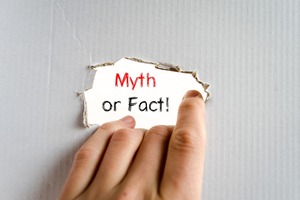
Understanding Small Business Bankruptcy
Bankruptcy allows businesses struggling with debt to restructure or eliminate their financial obligations. In Florida, small businesses typically file under one of three chapters of the U.S. Bankruptcy Code:
Chapter 7 – Liquidation
If your business cannot continue operating due to overwhelming debt, Chapter 7 may be the best option. This involves liquidating business assets to repay creditors. Sole proprietors may discharge personal liability for business debts, but corporations and LLCs must shut down entirely.
Chapter 13 – Reorganization for Sole Proprietors
Sole proprietors may qualify for Chapter 13, which allows them to restructure business and personal debts into a manageable repayment plan. This option is not available to corporations or LLCs.
Chapter 11 – Business Reorganization
If your business has the potential to recover, Chapter 11 allows for restructuring debts while continuing operations. The Small Business Reorganization Act introduced Subchapter V, a streamlined version of Chapter 11 for small businesses with debts under a certain threshold. This process is faster and more affordable than traditional Chapter 11.
Do You Qualify for Bankruptcy?
Your eligibility depends on several factors, including your business structure, amount of debt, and ability to repay creditors. Here’s what to consider:
- Type of Business: Sole proprietors can file under Chapters 7, 13, or 11. LLCs and corporations can only file Chapter 7 or 11.
- Amount of Debt: To qualify for Subchapter V of Chapter 11, total debt must be under $7.5 million (as of recent federal guidelines).
- Financial Viability: If your business cannot generate enough income to support a repayment plan, Chapter 7 may be the only option.
Alternatives to Bankruptcy
Before filing for bankruptcy, consider other solutions:
- Negotiating with Creditors: Some creditors may accept lower payments or extended deadlines.
- Debt Settlement: A structured settlement may reduce the amount you owe.
- Business Restructuring: Adjusting operations, cutting costs, or seeking new financing may help stabilize your finances.
Additionally, business owners should evaluate their personal liability for business debts. Sometimes, personal guarantees on loans or unpaid payroll taxes can make owners personally responsible even if the business entity files for bankruptcy.
Understanding these risks can help you determine whether bankruptcy is the right step or if other financial strategies may be more beneficial.
Speak with a Florida Bankruptcy Attorney
Choosing the right bankruptcy path is crucial for protecting your business and financial future. If you’re struggling with overwhelming debt, consulting a bankruptcy attorney can help you explore your options.
At the Law Offices of Robert M. Geller, we guide small business owners through the bankruptcy process, ensuring they make informed decisions. Contact us today to discuss your financial situation and determine the best course of action.


























![Signs That You May Need to File Bankruptcy [Infographic]](https://djml3wkzi26ea.cloudfront.net/wp-content/uploads/2021/01/signs-chap7-v-chap13.jpg)
![How To File for Bankruptcy [Infographic]](https://djml3wkzi26ea.cloudfront.net/wp-content/uploads/2020/07/bankruptcy-steps-infographic-web.jpg)










